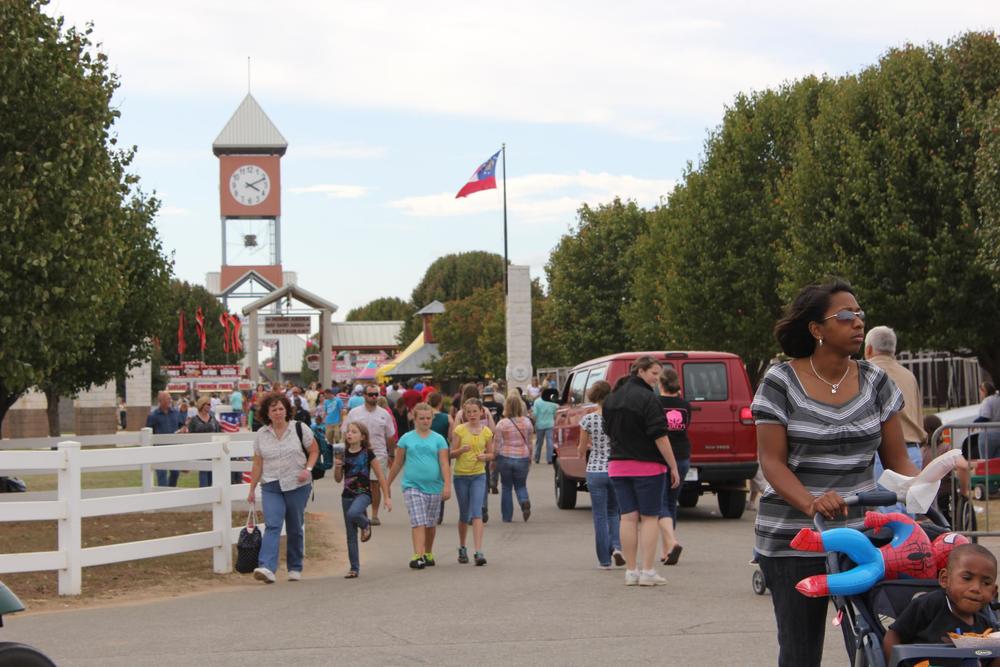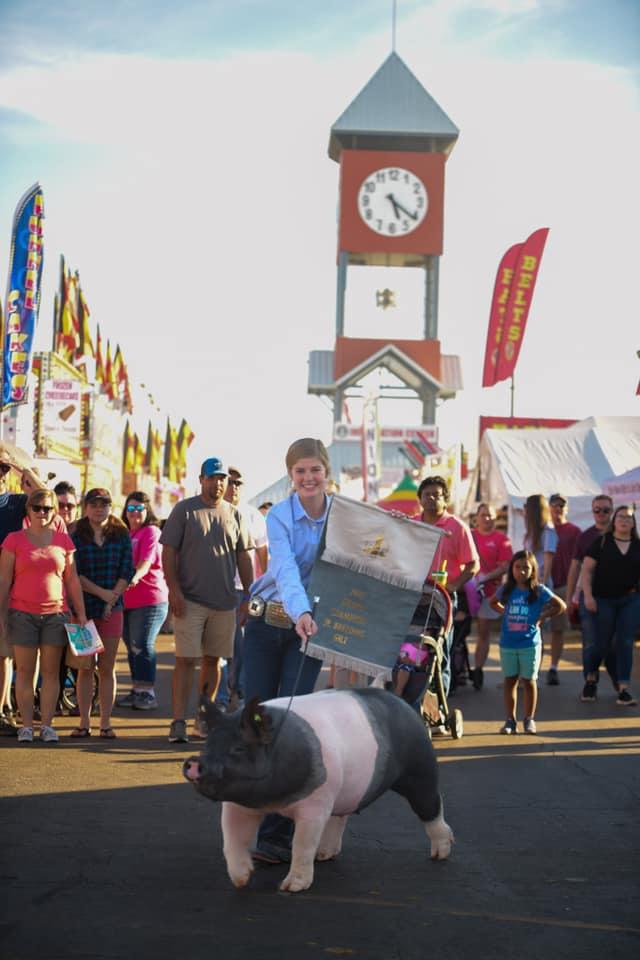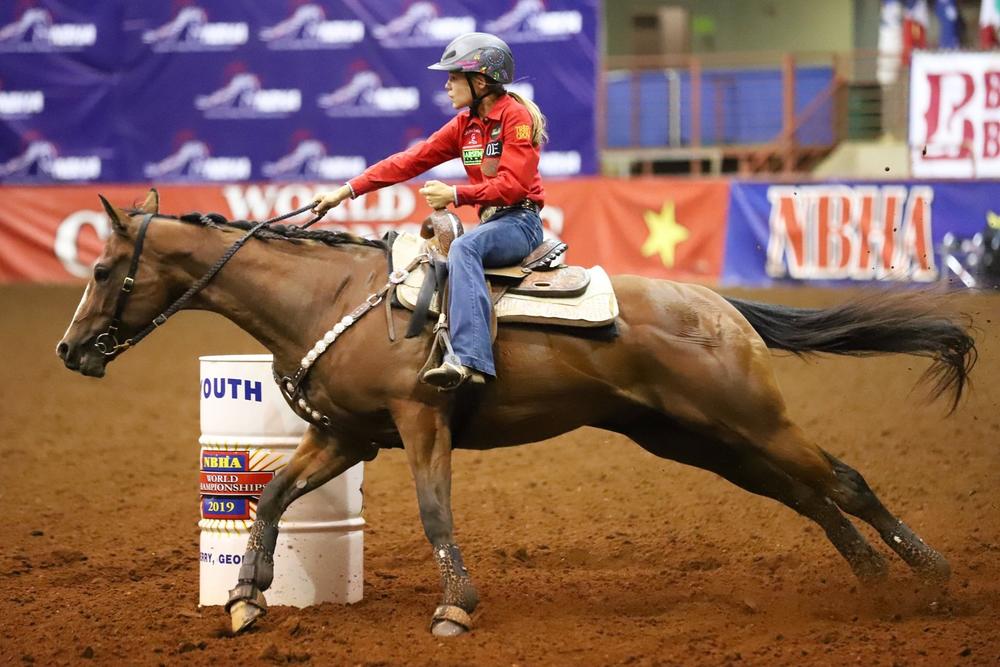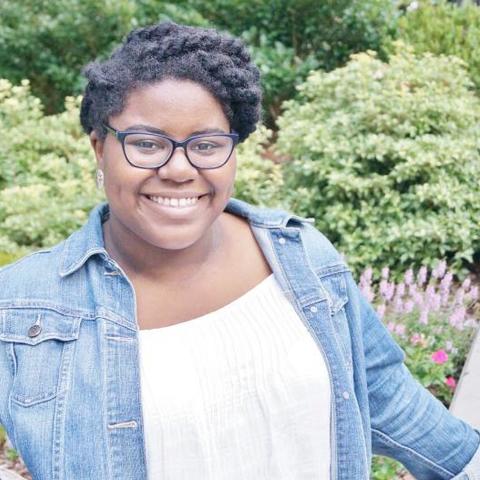Section Branding
Header Content
Despite Coronavirus And Funding Cuts, Georgia National Fair Still Scheduled To Go On
Primary Content
The Georgia National Fairgrounds and Agricenter in Perry — 106 miles south of Atlanta — is anticipating a nearly $400,000 drop in revenue due to the spread of COVID-19, and despite the pandemic, the Georgia National Fair is still scheduled to go on in October.
In the complex’s 2021 operating budget, the budgeted event revenue has been reduced from previous budgets by $250,000 — that includes equestrian, agricultural, rodeo and fair revenue — and other revenue budgets have been reduced by nearly $30,000 in an attempt to reflect a revenue decline due to the coronavirus.
Chief marketing and business development officer Keaton Walker said even though the fairgrounds and agricenter have been about 97% self-sufficient over the last several years, they do receive a lot of state funding as well. Because of the pandemic and its economic consequences, she said the facility will be a bit less self-sufficient.
“We’re trying to figure out how we can make a difference in what the state is not going to be able to give us this year,” she said. “But we are very hopeful that we can make it up.”
The facility will also function with fewer people. Four impending retirements in July will provide a $225,000 reduction in salaries, and the facility has already laid off eight staff. The revised budget, however, makes room to hire five replacement employees “when circumstances improve,” it read. Those exact positions are unknown at this time.
The budget also reflects two-month furloughs at 16 hours a month for the six highest compensated employees and one-month unemployment for 36 full-time employees. In total, the personnel reductions total about $400,000.
All of these budget cuts come after Gov. Brian Kemp proposed a 14% cut to state operations in response to COVID-19. In an exclusive interview with GPB News, Kemp said he’s been working on budget cuts for a while in an effort to streamline agencies and make them more efficient.
“Now, this is going to be a brutal budget environment that we're in,” he said. “In Georgia, we have a constitutional amendment that says we have to balance our budget, so we can't spend more than we take in. So these cuts are going to the bone unless something happens with federal funding.”
The Georgia National Fairgrounds and Agricenter tried to maintain operations when the coronavirus first spread to the state. In early March, they continued to hold some events that were already planned, but soon after postponed and cancelled others— which were all showcases or competitions — scheduled in spring and summer.
Walker said that show managers from across the country were abiding by their state’s regulations as well as the advice from President Donald Trump, and they pulled out of the scheduled events.
“Whenever you start bringing in people from not just throughout the state of Georgia, but from surrounding states, a lot of their show managers knew that it was not the right time,” Walker said. “The unknown was still very prevalent with this virus and they weren’t sure of how to take those proper precautions.”
The facility attracts people and participants from across the country for events such as the Georgia National Antique Agriculture Show, the Georgia National Rodeo and the Georgia National Fair. Walker said that as the coronavirus swept through they had to ensure events met strict regulations before returning to the fairgrounds.
“Our number one priority is always safety, whether that be personal safety, physical safety, health [or] well-being,” she said. “We always want to make sure that that is the number one, top of our priority list.”
Now, she said there’s a light at the end of the tunnel.
The fairgrounds and agricenter have events scheduled for July. And while Kemp signed an executive order on Thursday extending the public health emergency until July 12, Walker says they’re addressing how to reopen safely.
“We actually have a Board of Authorities that sit and govern over the fairgrounds, in addition to all of our immediate staff and our CEO, so we are in very much big talks with the governor himself,” she said. “We're in talks with the CDC. We're in talks with all healthcare professionals that are needed to make those decisions.”
The facility is unsure of when in July they will reopen, but when they do, the events’ logistics would make social distancing and transmission reduction easier.
“We'll be back up and functioning like whatever this normal will be, but the good thing about our events is that almost all of them are outside,” Walker said. “Of course, we have our barns that you would actually compete in, but the prep area, the get-ready area, the warmup range, even the places that they stall these animals are outside in an open air facility.”
Because the fairgrounds’ events are mostly outside and have fresh air circulating throughout, Walker said patrons and competitors won’t be in contact with masses of people, and they will be able to practice social distancing.
Come October, the fairground’s largest event is scheduled. How the Georgia National Fair will be handled is still uncertain.
The Georgia National Fair hosted over 560,000 attendees last year in its 11-day celebration, and Walker said people have already reached out inquiring about the state of the fair in light of the pandemic.
“One was asking us not to cancel [The Georgia National Fair], one asking how to attend and what regulations that need to abide by,” she said. “This is an event of the year, and we don’t say that lightly.”
Because the fair brings in millions of dollars in revenue and welcomes hundreds of thousands of people from all over the country, staff organize and plan for it year-round. With the country still in the throes of the coronavirus, the fairground’s staff are in close contact with the International Association of Fairs and Expositions to ensure they can resume fair operations as safely and seamlessly as possible.
“With it being in October, we're very hopeful that [the coronavirus] will be at a standstill or completely, at that point, diminished, but we are also smart in our dealings knowing that we need to work ahead of this and make sure that whatever the new guidelines might be at that time, that we are ready to to work around those,” Walker said.
Before the coronavirus pandemic, the fairgrounds were already implementing ways to increase sanitation such as installing more hand sanitizer dispensers and providing hand washing stations. The only planned change would be asking people coming in and out of barns to wash their hands, and employees will make more accommodations in large facilities.
“We have prided ourselves on making sure that we do a wonderful job in keeping the facility clean and making sure that we offer plenty of places for people to keep themselves clean and feel safe and comfortable,” Walker said.
If and when the coronavirus is no longer a public health threat, its effects will be long lasting and redefine the new normal at the Georgia National Fairgrounds and Agricenter.
“I think it will change everyone’s perspective on some things. What those things are right now, I think that’s still unsure,” Walker said. “Health is always on the forefront of everyone’s mind and what’s healthy. You go from food to physical [health] to mental health. You can look at all aspects of it, but I think health is always one of those first questions of anything you do.”





